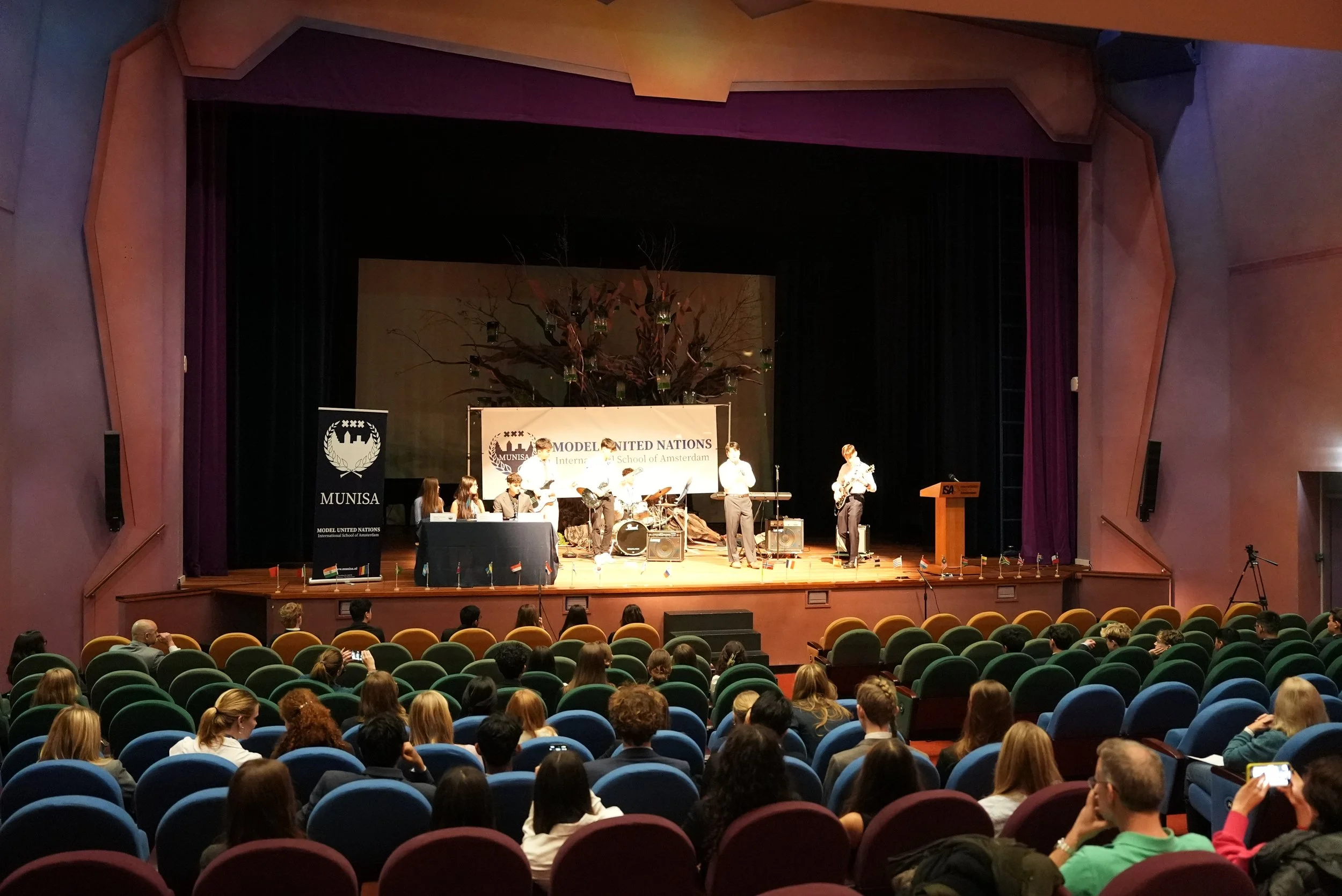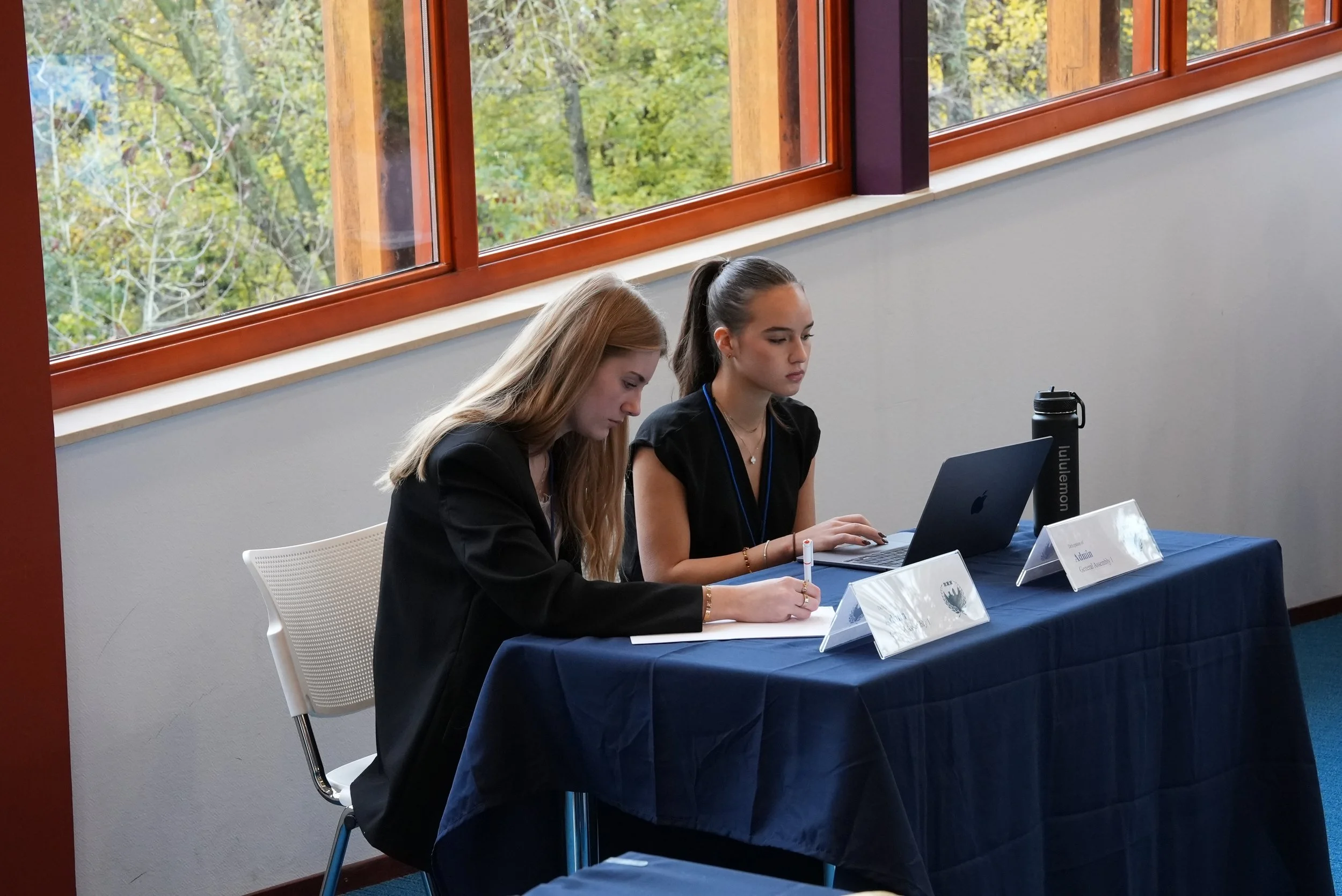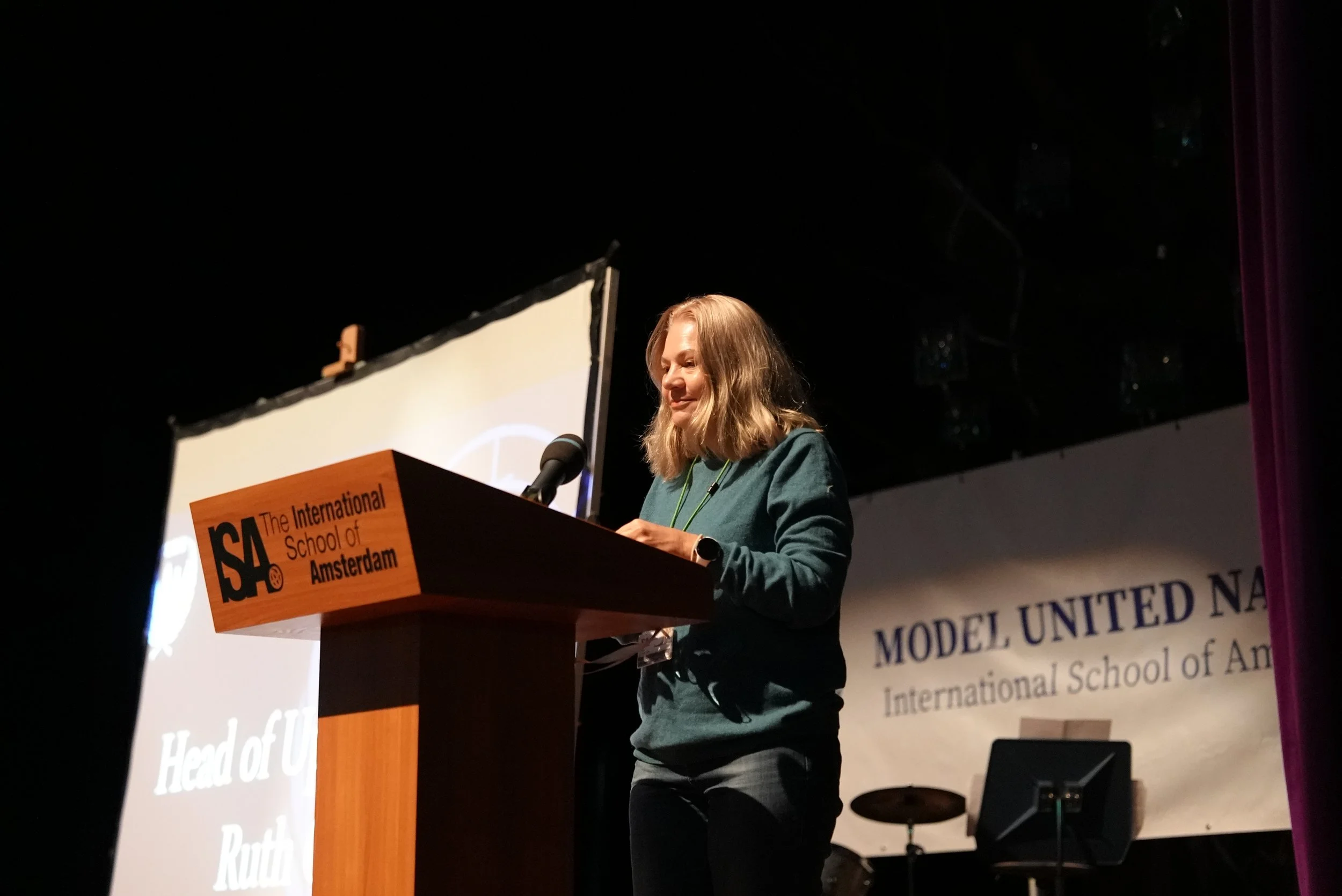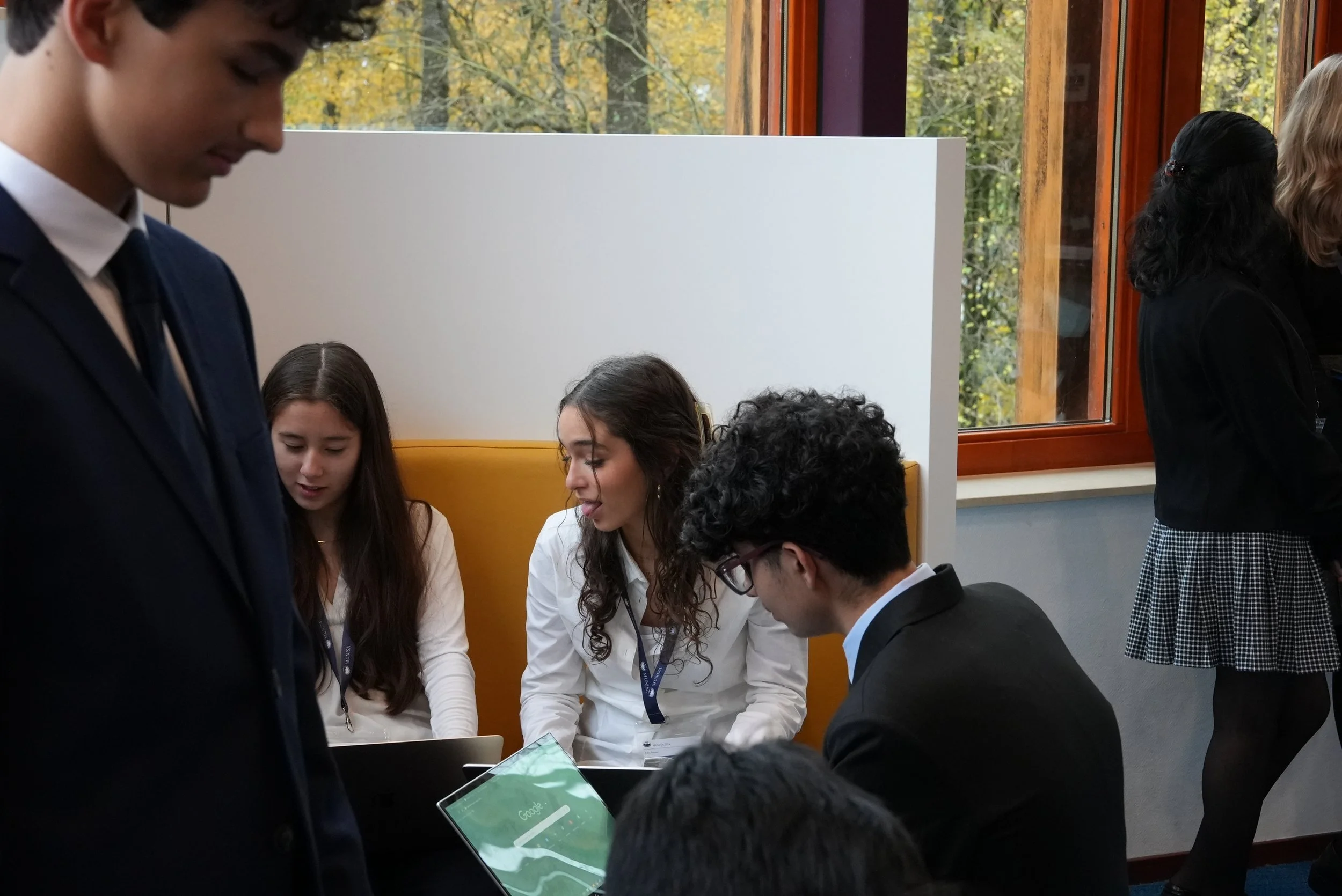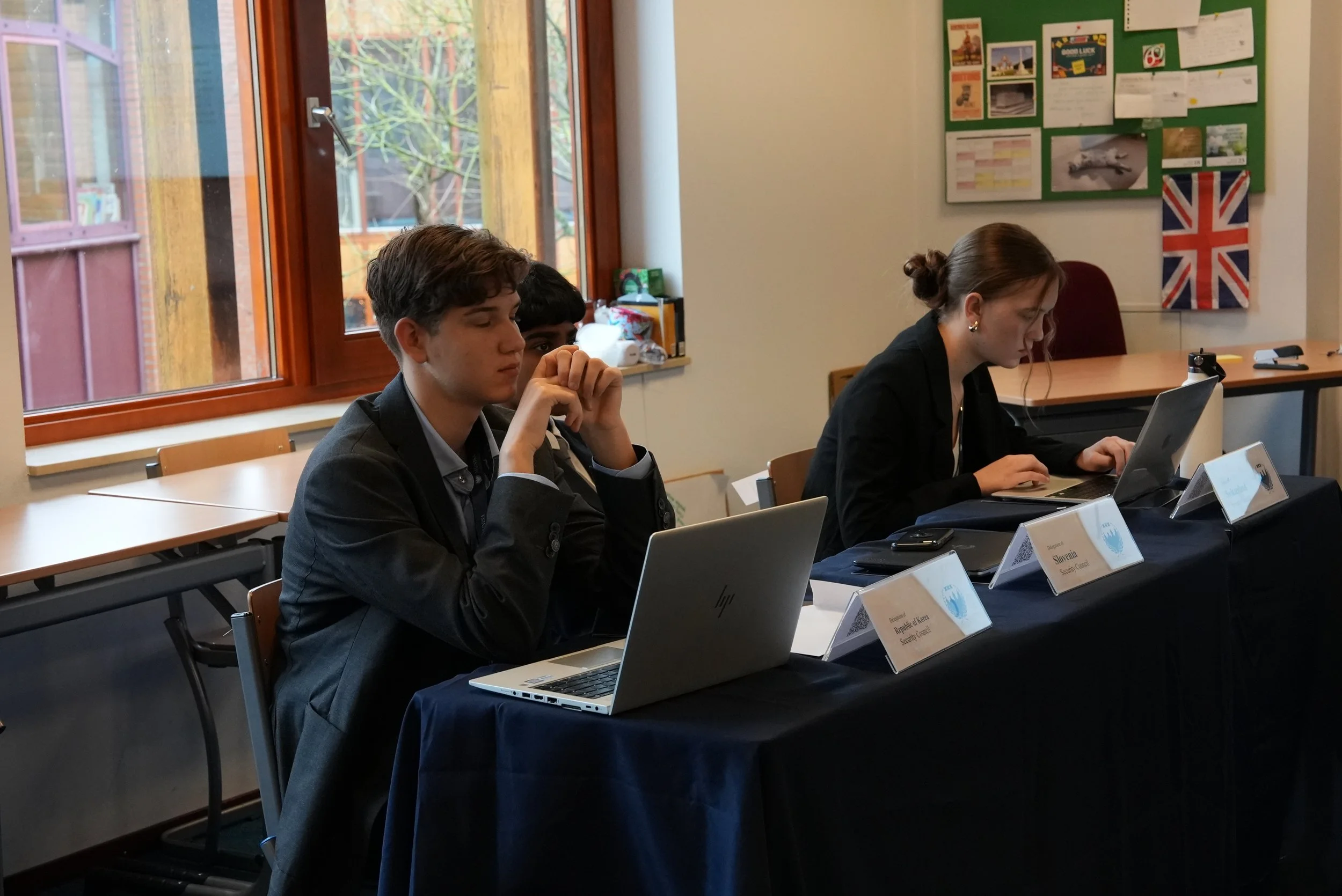ISA Hosts Annual MUN Conference
By Sterre Schlosser
Model United Nations (MUN) is an educational model of the United Nations that is available as a club at many schools, including ISA. Every Tuesday, members of the ISA MUN meet in the US library from 15:45-17:00. Throughout the school year, various schools host MUN conferences, which other schools travel for.
This year, ISA hosted the annual conference–MUNISA–on Nov 23 to 24. ISA hosted 84 students from four different schools. The theme was Peace and Justice: Forming Equitable Solutions. The conference assigned students to one of four committees: Security Council (SC), Historical Security Council (HSC), Human Rights Council (HRC), and the General Assembly (GA).
The Voice was granted special access to the proceedings. I had the opportunity to speak with delegates, admins, and chairs, both visiting and ISA students.
The Opening Ceremony got the proceedings off to a great start.
Omer Amitai, a student at AICS and the President of the General Assembly, opened the ceremony with an eye-opening statistic: 92 countries are currently involved in conflict outside of their own borders, something Omer described as “an overwhelmingly large number”. Omer requested “the House join [him] in a moment of silence for the victims of conflict and those seeking refuge from it”. The moments of silence set the tone for the weekend as they allowed delegates to realise that their debate topics are the lived realities of people around the world.
“The moment of silence set the tone for the weekend as they allowed delegates to realise that their debate topics are the lived realities of people around the world. ”
I spoke with Omer about his remarks and his experience in MUN. Omer has been in MUN at AICS for three years. He joined MUN because of his interest in politics and diplomatic aspirations for his future, and he described MUN as “his place.”
When we spoke with him on Saturday, his favourite moment of MUNISA was “leading the opening ceremony, which [he hasn’t] gotten to do before at MUN”.
He told me he was looking forward to “seeing what [his] committee comes up with as they already seemed to have good ideas”. Considering Omer’s MUN experience, I asked him for his best piece of advice for first-time delegates, which he said was “to take initiative, don’t wait for someone to call on you.”
Omer’s opening speech was followed by ISA’s own Elle Chassin, the Secretary General of MUNISA, who spoke about how she hopes MUNISA will spark the same passion among delegates that a conference four years ago did for her. The opening ceremony ended with speeches from Ms. Clarke, the Head of Upper School, and Amelia Dorner, the Deputy Secretary General of MUNISA.
Chloe and Clemence taking notes on GA1 debate
Chloe Lillian and Clemence Simon are 12th-grade students at ISA who worked as admins during MUNISA. Clemence told The Voice the role of an admin is important in ensuring “coherence and organisation.” During committee debates, admins “make sure that voting periods are undisturbed”, which essentially means making sure that people are not walking in nor out. Chloe added that a large part of their responsibilities lie in “making sure that the room is secure”. Admins can be found in the back of committee rooms and passing notes between delegates to prevent unnecessary disturbance.
With students visiting from four schools, I took the opportunity to speak with some of these delegates. Each of them offered unique perspectives on MUNISA.
One delegate, Evie Hodgson, is a student at the British School of Amsterdam. Evie has attended five MUN conferences and represented Venezuela at MUNISA. She joined MUN because of her desire to “try and combat what’s going on in the world.” Many delegates have to defend the views of the country which they represent at a conference, even though these might not align with their personal beliefs. Evie told us she combats this by “taking a neutral stance when researching” to “reflect the fact of [the] country” which she represents.
Lastly, we spoke with Rose Ebigale Kumar, a student at The International School of The Hague representing Peru in the Historical Security Council, which was tasked with solving the 1956 Suez Crisis. She’s been to five MUN conferences and started MUN because of her desire to “go into law” as well as MUN’s ability to “build up [her] public speaking”. She told us she focused on discovering how to “help other countries while still representing the values of the country [she] represents.”
All in all, MUNISA 2024 was highly successful. Students could explore their diplomatic interests while generating innovative solutions to real-world problems. To join MUN at ISA, speak to Mr. Sean Kelly or attend an after-school meeting! (every Tuesday, Upper School Library from 15:15-17:00)
For information on the Board of Directors, read The Voice’s new article: “The Backbone of MUNISA: Meet the Board of Directors”
Photo Credit: Andy Imes and Jaroslav Lemmens

